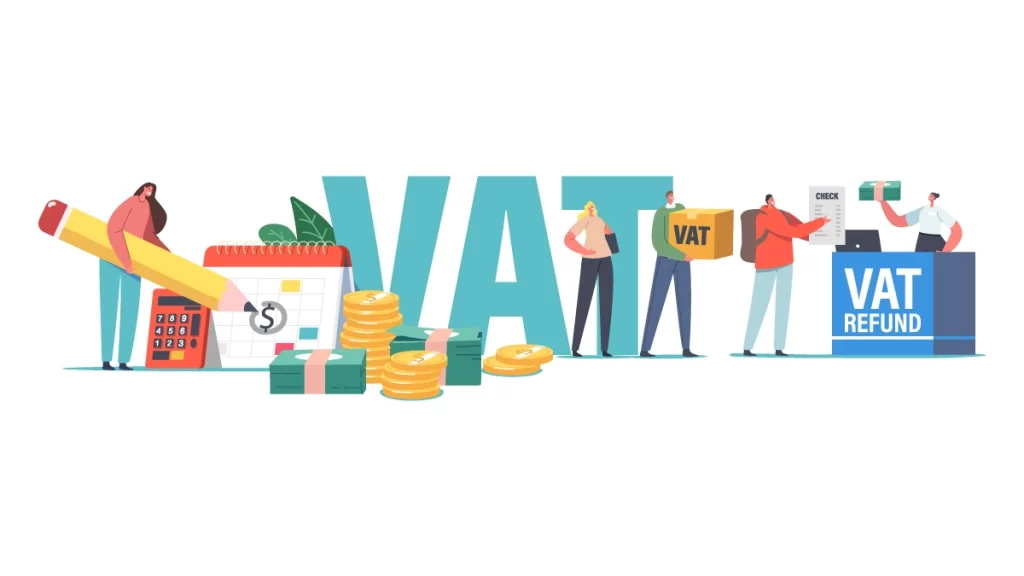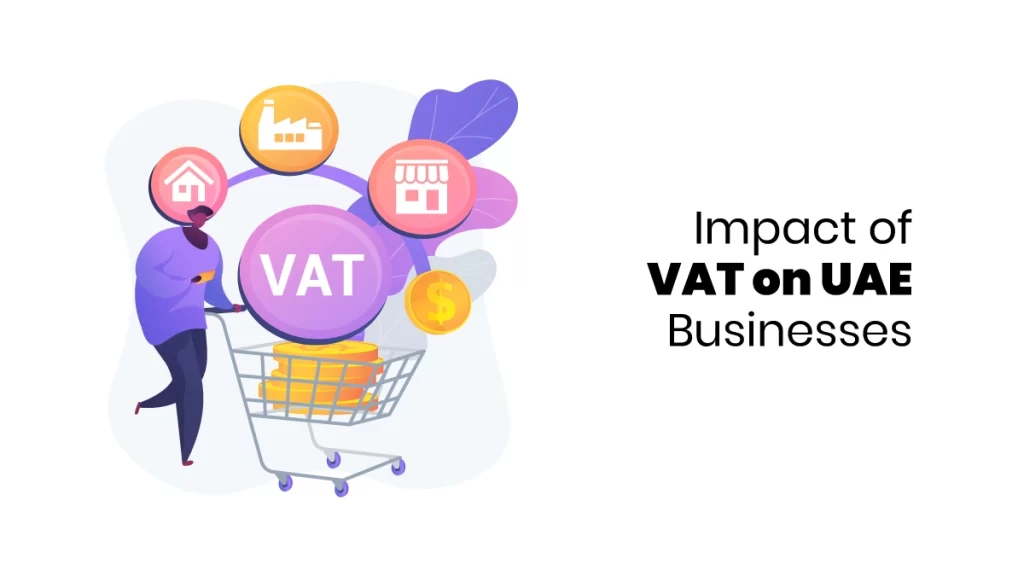Value Added Tax (VAT) is a tax you pay when you buy things or services. Even though it sounds simple, getting used to this new tax can be challenging for businesses. Starting in January 2018, the UAE began using VAT at a rate of 5%. This change doesn’t just affect people shopping but also has a notable impact on businesses. Let’s break down some important things you need to know about the impact of VAT on UAE businesses.
How does VAT affect your business – Is it good or bad?
In an ideal scenario, Impact of VAT on UAE businesses works like this: businesses can subtract the tax they pay when buying things from the tax they collect from customers. The difference is then paid to the government. However, if a business isn’t meticulous in managing its sales and purchases, they might lose money because of VAT. This can also lead to higher prices for customers. So, it’s essential to closely examine the entire business plan and ensure everything is in check.
Impact of VAT on UAE businesses
The impact of VAT on UAE businesses extends beyond accounting; it reaches into various business functions. It’s not just about crunching numbers; CEOs must consider the bigger picture. The ripple effects touch pricing, IT systems, supply chain, processes, policies, contracts, and HR. It constitutes a holistic transformation in how businesses operate. Impact of VAT on UAE businesses in different ways. Here’s a breakdown of how VAT alters their operations:
Prices
Because of VAT, businesses must consider how much things cost. They have to include VAT in the prices, which can affect what customers buy.
Money flow
With VAT, handling money becomes more complicated. Businesses must collect and pay the tax on time to avoid getting in trouble.
Rules regulations
UAE businesses must stick to the VAT regulations for a hassle-free operation and avoid fines.
Getting registered
If a business makes more than AED 375,000 in a year, it must register for VAT. Even smaller companies can choose to register voluntarily. This helps them take advantage of recovering input tax.
Record keeping
Businesses must keep tidy records of transactions, invoices, and receipts. This helps in the case of audits and makes it easier to meet reporting requirements.
Filing VAT papers
Impact of VAT on UAE businesses causes procedures like having to submit VAT returns regularly. This involves summarizing things like taxable supplies, output, and input taxes. It helps businesses determine how much VAT they owe or can get back.
Understanding VAT Invoices
Making the right kind of invoices is crucial. Invoices must meet specific rules set by the Federal Tax Authority to follow VAT regulations.
Handling VAT penalties
Not following the VAT rules might mean dealing with penalties. Knowing the penalty system is crucial to avoid financial troubles.

Ways to save costs for UAE businesses
Surviving the impact of VAT on UAE businesses means finding ways to save money. Here are some smart moves:
Getting back input tax
Get back the VAT you paid on things you bought for your business. It’s a smart way to cut down on how much tax you owe.
Using tech tools for easy VAT management
When we use VAT automation software, it makes it easier to follow the rules. It helps with calculations, reporting, and keeping records, which means less work for the admin team.
Checking VAT regularly
We can find mistakes or areas where we can better handle VAT by doing internal VAT audits. This helps us stay on track with the rules and save us money.
Getting help from experts
If we hire a VAT consultant or expert, they can give us helpful advice based on our specific VAT needs. They can help us understand complicated tax things and guide us in making intelligent decisions for our business.
A UAE VAT course can significantly enhance your career prospects in the GCC countries. It gives you practical knowledge, making discovering the complexities of VAT processes for businesses more accessible. Finprov offers various courses suitable for everyone, from recent graduates to experienced professionals. Our courses provide essential skills to secure a rewarding position, supported by valuable placement assistance.
Our advanced UAE VAT course covers essential topics, including the basic principles and operational details of VAT, a comprehensive overview of the VAT registration process, the impact of VAT on import and export businesses, a detailed exploration of invoicing and documentation requirements, a solid understanding of VAT compliance and filing responsibilities, proficiency in accounting entries, effective recordkeeping practices, and insights into potential penalties. Mastering these areas opens up diverse career opportunities, including roles like VAT Executive, VAT Consultant, Finance Manager, Senior Accountant, Tax Executive, VAT Expert, Billing Clerk, Sales Accounting Manager, or various administrative positions.










